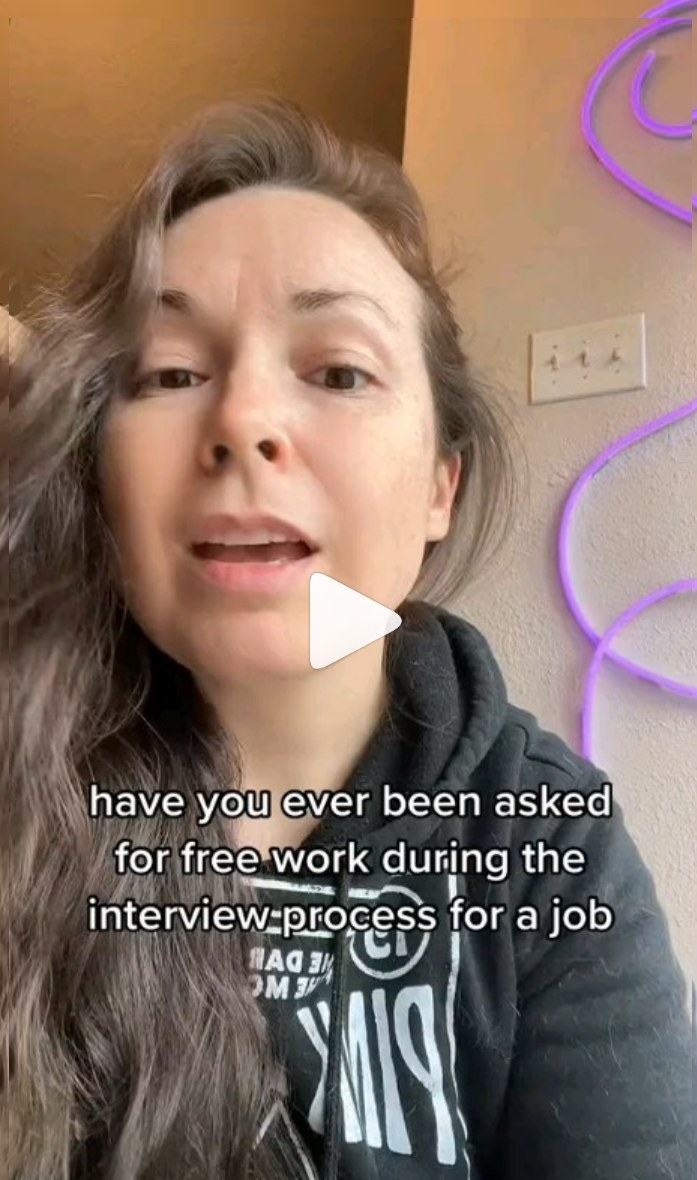A few months ago I saw a job opening on Linkedin for a fully remote Content Strategist/Technical Writer position that listed a salary range of $140K to $160K. It was the perfect example of my weird half-and-half background of working as both a writer and engineer. So, obviously, I applied right there and then.
Days later I had an interview scheduled, with another follow-up interview a week after. Then, they hit me with ~The Catch~ — something they explained would be required if I wanted to continue to the next stage of the process.
They wanted me to complete an assignment. I was to write a blog post on a technical topic of my choice, create a content strategy around it, and travel to their office to present the project to a panel of interviewers. In all, the project would take me anywhere from four to eight hours to complete, plus additional time for travel and going into their physical office.
When I asked if I would be compensated for my time spent on the project, they said they didn't have the budget to pay for interviewee projects.
I chose to not continue forward with the assignment.
Their request for free work up front gave me a clear indication that I may often be expected to do extra unpaid work while on the job.
This wasn’t the first time I've been asked to complete free work during an interview process, either.

Shortly after that, I had another recruiter from a well-known tech company contact me on LinkedIn for another technical writing position.
Even after I applied with my resume and portfolio, and had the introductory interview, they asked me to write another sample that they could review.
This one I actually decided to do because they agreed it could be a short guide. So, I wrote a short user guide that took me maybe 30 minutes. However, I didn’t end up getting the job — and that time spent could be considered wasted. One way that work can go unwasted is if I add it to my portfolio. That practice can also be considered skill-building.
But still, unpaid labor is wrong. WRONG.
I've been working in tech and I.T. for the past decade and started writing about six years ago. Free work during applications and interviews is nothing new, but in my opinion, it's getting out of hand.
Writing jobs are a different story. I normally see more unpaid work being requested for writing and creative positions — both for full-time, part-time, contract, and freelance work.
If a job interviewer requests me to complete any sort of free work, the first thing I ask is if the work is paid. If it isn't, the only way I'll do it is if it requires a maximum of one hour of my time.
Something is changing with company hiring procedures, and it's not great.
It's like the five-plus interview round process at some companies. Like, WHY!?
Didn't that job listing indicate they wanted someone who can start as soon as possible? Their intentions aren't matching up with their actions.
This had me thinking: how many of these companies are using an interviewee's unpaid work for their own gain in their day-to-day business operation?
Everyone deserves respect for their intellectual property, especially in a job interview.
Companies need to realize this and have an explicit agreement set up where they must compensate the job applicant for their trial project. If they want to also use that project later on, usage rights to that intellectual property should be included in that agreement.
